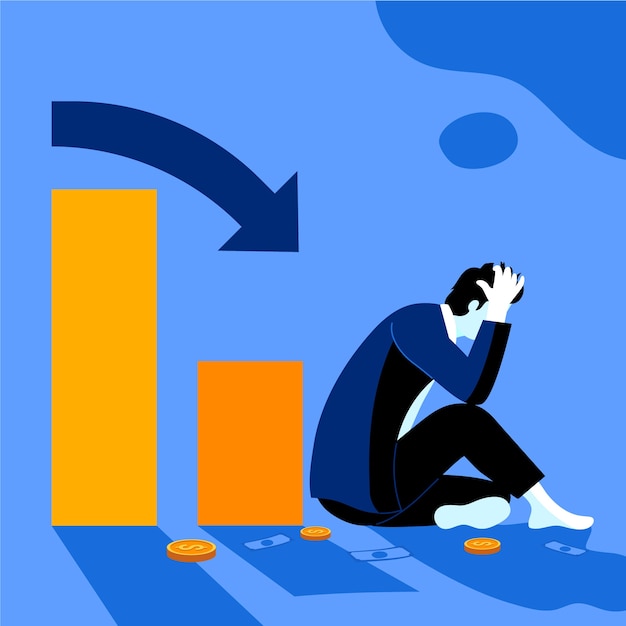Brace yourself, folks! It looks like we might be heading for another recession. With interest rates on the rise, oil prices going up, layoffs increasing, and the housing market slowing down, it’s starting to feel like a recession is just around the corner. Don’t get caught off guard – start preparing now.
Remember the last time we had a major recession? It was between October 2007 and March 2009, when the S&P 500 fell by a whopping 57%. It took about five years to recover from the 2008-2009 Global Financial Crisis. While I don’t think we’ll see a repeat of that scale – thanks to stricter lending standards and stronger balance sheets – we could still see a significant downturn, especially if the Fed keeps interest rates high in 2024.
The thought of losing time due to financial loss is scary. Imagine losing five years of savings because of a recession. That’s a tough pill to swallow, considering how valuable time is.
So, how can we prepare for a potential recession? Here are ten tips:
-
Save up: Aim to have 6-12 months of living expenses in cash. This will help you avoid selling assets at low prices if you lose your job or find yourself over-leveraged.
-
Manage your risk: Understand the historical returns of your public stock and bond portfolio and adjust your asset allocation according to your risk tolerance.
-
Set clear investment objectives: Knowing your investment time horizon can help you better match your risk tolerance. Always be aware of WHY you are saving, investing, and working.
-
Build strong work relationships: The people who get laid off first during a recession are usually the least liked or the worst performers. So, try to deepen your work relationships now.
-
Diversify your income streams: The more income streams you have, the better you can withstand a recession. Consider starting a side hustle if you haven’t already.
-
Collect outstanding debt: If you have any outstanding private personal loans, try to get your money back ASAP.
-
Check in with your tenants: If you own rental properties, it’s a good idea to check in on your tenants to see how they’re doing.
-
Lower your withdrawal rate: If you’re already retired, see if you can reduce your withdrawal rate and still live comfortably.
-
Consider retiring during a recession: If you can retire during a recession, it means your finances are strong enough to handle difficult times.
-
Find a new job before your company sinks or lays you off: If you’re still actively building your wealth, you must be aware of your company’s performance.
Remember, recessions are temporary. According to the National Bureau of Economic Research, the average length of recessions since World War II has been approximately 11 months. So, if you can survive for 11-24 months without a job, you’ll probably be fine.
If you have the cash, look at recessions as an opportunity to invest in your favorite risk assets at more reasonable prices. Or, you could spend more money on things and experiences, as most things get cheaper during a recession.
So, what do you think? Is another recession just around the corner? If so, how are you preparing for it? I’d love to hear your thoughts and suggestions.
